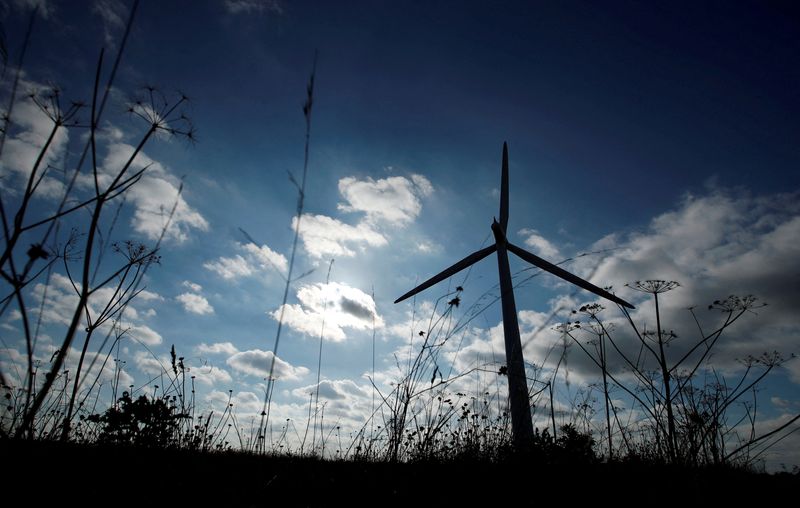By Gloria Dickie
DUBAI (Reuters) - What if the world could quickly slash climate-warming emissions, without having to build so much new renewable energy capacity?
That's exactly what some experts say needs to happen, by improving the efficiency of appliances and electricity grids through efforts like plugging leaks and stopping so-called "vampire loads" from devices that pull power from wall sockets even when switched off.
By lowering the amount of power needed to perform the same tasks, the world could burn fewer fossil fuels and spend less on expanding solar or wind capacity.
"We don't just need to change the way we generate electricity, we need to change the ways we use it," said Larissa Gross of E3G climate think tank.
At least 118 countries at the COP28 climate summit in Dubai have backed a pledge to improve energy efficiency rates by 4% each year until 2030. That would be a doubling of the 2% improvement in efficiency rates seen in 2022.
HOW CAN ENERGY BECOME MORE EFFICIENT?
The International Energy Agency (IEA) has called efficiency the "first fuel" of the energy transition and one of the fastest and most cost-effective ways to cut greenhouse gas emissions.
In its simplest form, energy efficiency can simply mean using appliances, technology, or electronics that are designed to consume less energy, such as heat pumps or LED lighting.
At a larger scale, buildings can be designed with better insulation to lessen the need for air conditioning or heating. Factories or cities can improve wiring to get rid of leakages.
As more industries including transport seek to power up from the electric grid, rather than through burning fossil fuels, demands on the grid will rise steeply.
"We need to make energy efficiency as sexy as wind turbines," said Sofie Irgens, head of the climate solutions accelerator at Danish multinational Danfoss, which produces heating and cooling products.
Government regulation can also help by, for example, requiring minimum energy performance standards in appliances, vehicles or manufacturing.
HOW MUCH ENERGY AND MONEY CAN BE SAVED?
Doubling the global average efficiency rate could provide half of all necessary emissions reductions in 2030, according to the IEA's Net Zero Roadmap.
For the European Union and Britain, it would mean an overall reduction in CO2 emissions of 40 million metric tonnes each year by 2030. That translates to annual cost savings of about 10.5 billion euros ($11.43 billion), Danfoss estimated in a November 2023 white paper.
Industries worldwide could save $437 billion per year by 2030 with improved energy efficiency, according to an October 2023 industry collective report by the Energy Efficiency Movement.
WHAT OFFERS THE BIGGEST ENERGY SAVINGS?
Switching to electric vehicles or heat pumps can offer significant energy savings if plugging into grids that increasingly draw on renewable power sources.
Electric vehicles also waste less of their energy reserve than combustion-engine vehicles powered by gasoline.
The U.S. Department of Energy estimates that EVs currently use 77% of their battery energy for power at the wheels. Gasoline vehicles can only harness about 12% to 30% of the energy from gas in their tanks.
Heat pumps can be up to five times more efficient than gas boilers, the IEA says.
In developing countries, including India and parts of Africa, the same logic applies to shifting to electric cookstoves instead of burning cow dung or firewood to cook.
"Electric cooking is hugely more efficient than biomass cooking," said energy researcher Nick Eyre at Oxford University.
IS PROGRESS BEING MADE?
Since 2020, countries have mobilized around $1 trillion for energy efficiency projects, from building retrofits to public transport to support for electric vehicles.
As a result, energy efficiency improved globally this year by about 1.3% compared with last year, slower than the 2% improvement posted in 2022 due largely to rising energy demand, the IEA's annual Energy Efficiency report said.
In the U.S., energy efficiency is beating the global average efficiency improvement rate this year at 4%, with $86 billion allocated for the goal under the Inflation Reduction Act.
And the European Union saw energy being used 5% more efficiently this year following an 8% improvement last year, thanks in part to milder winters.
Germany, Sweden and the Netherlands together saw heat pump sales rise 75% in the first half of 2023, compared with the same period last year.
The IEA has also highlighted opportunities in developing countries with growing cities, which can better plan for new energy-efficient buildings as their economies grow.
___
For daily comprehensive coverage on COP28 in your inbox, sign up for the Reuters Sustainable Switch (NYSE:SWCH) newsletter here.
($1 = 0.9190 euros)
